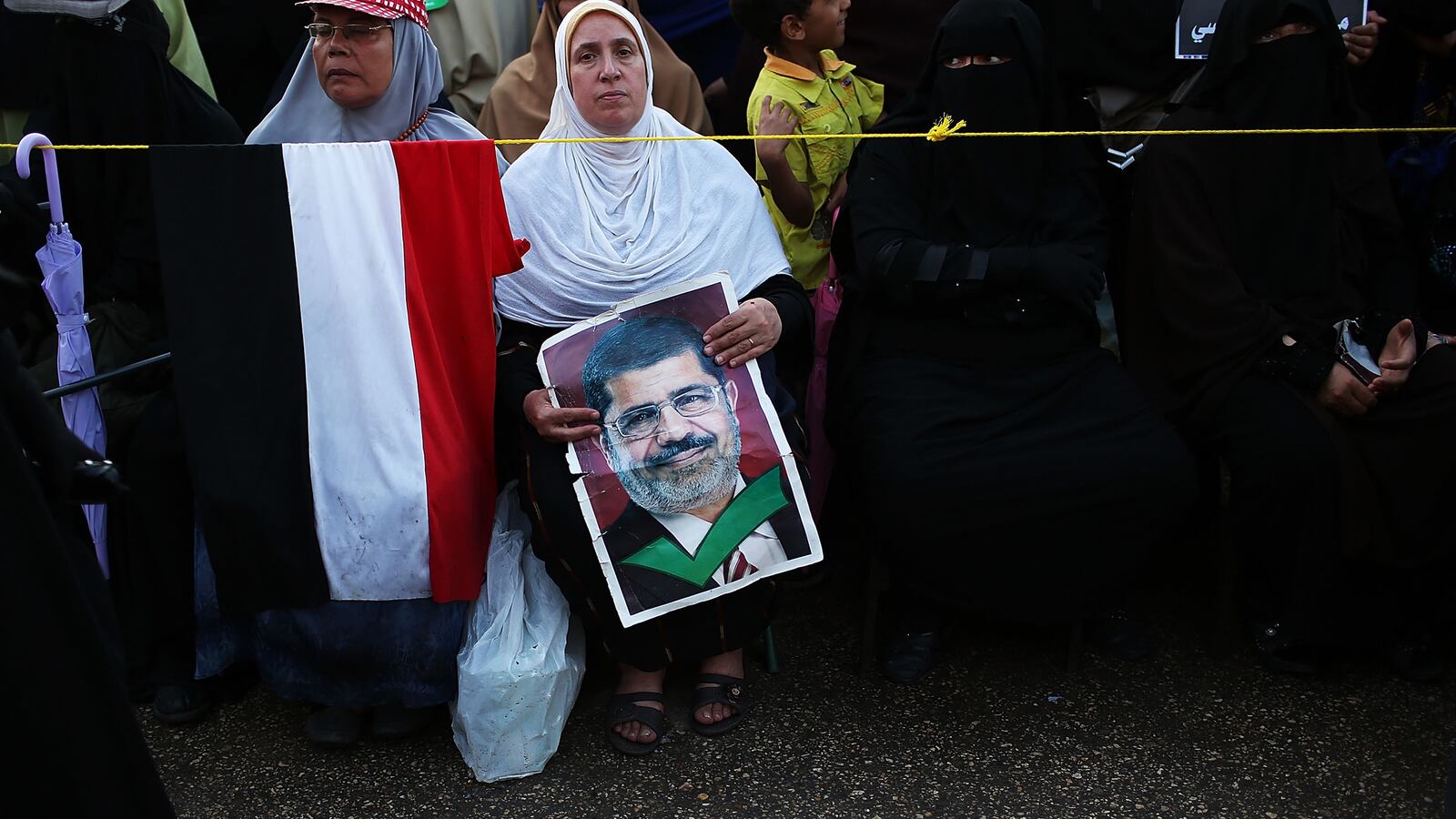The killing of some 50 Muslim Brotherhood supporters, allegedly at the hands of the Egyptian Army, marked a new low in the ongoing crisis surrounding the July 3 ouster of Egyptian President Mohammed Morsi. The crisis began ahead of mass protests on June 30 in which millions of Egyptians took to the streets to demand that Morsi step down, prompting the Egyptian military to remove Morsi by force. Since then, around a hundred Egyptians have been killed and several hundred more injured.

While immediate responsibility for the current crisis undoubtedly rests with Mohamed Morsi and the Muslim Brotherhood, the trajectory for recent events was set two and half years earlier. The latest bloodshed is the culmination of the highly dysfunctional political transition designed and overseen by the Supreme Council of the Armed Forces (SCAF), which took control of the country following the overthrow of Hosni Mubarak in February 2011, and is once again at the helm of the Egyptian state.
Thus, the SCAF’s decision to scrap the transition and start over is not only an indictment of its own mismanagement but a political failure on a grand scale. Since Mubarak’s ouster, Egypt’s social and political climate has grown increasingly divisive, acrimonious, and polarized, a dynamic often exacerbated by the SCAF’s blatant attempts to manipulate the political process. Thus, instead of consolidating Egypt’s path toward stability and democracy, the election of the country’s first civilian president in June 2012 and the adoption of a new constitution six months later only deepened the atmosphere of polarization and mutual de-legitimization.
From the outset, the Muslim Brotherhood showed every inclination of repeating and compounding the SCAF’s mistakes. Thus, when newly elected President Morsi issued his highly controversial “constitutional declaration,” placing his decisions beyond the reach of the courts, and rammed through a constitution over the objections of secular and liberal opposition groups in late 2012, he was merely following a precedent established by the SCAF.
For all its electoral success and mastery of retail politics, the Brotherhood has proven spectacularly inept at nearly all other aspects of politics. Even before Morsi was elected, the Brotherhood’s record of broken promises and reputation for rank opportunism managed to burn bridges across the political landscape. After only a year in power, Morsi and the Brotherhood had managed to alienate what few political allies they still had while picking fights with the judiciary and other government institutions.
Even when faced with growing unrest and a recalcitrant bureaucracy, the Brotherhood failed to realize that there was more to politics than elections, and that its ability to govern—at all if not effectively—would require a modicum of good will and political consent. In the lead-up to the army’s intervention on July 3, with the Egyptian state in virtual paralysis, the police in open mutiny, and millions of Egyptians mobilized in cities across the country, Morsi and the Brotherhood had numerous opportunities to climb down from their maximalist positions but repeatedly refused all of them.
As a result, Egyptians were faced with an impossible choice between continuing under an ineffectual and highly destabilizing majoritarian tyranny and calling on the military to nullify the outcome of a democratic election. Ultimately, most opted for the latter.
While most of the blame for Egypt’s botched transition rests with those in power, namely the SCAF and the Brotherhood, the country’s inept and fractious opposition forces also had a hand in getting us to the current crisis by consistently failing to present a viable alternative. Not only did the opposition fail to capitalize on the Brotherhood’s repeated failures, the various secular, liberal, and revolutionary groups that gathered under the umbrella of the National Salvation Front (NSF) lacked both a coherent political vision and a reliable political machinery on the ground. In the absence of a strategy, opposition leaders were more often led by the street than leading it. If the Brotherhood presided over a government that could not govern, the NSF represented the equally absurd specter of an opposition that could not oppose.
All of this is now water under the bridge. The question now is whether Egyptians can pick up the pieces and find a way forward that avoids deepening the cycle of violence, a thwarting of the democratic transition altogether, or worse. The current violent crackdown against the Brotherhood, including the arrests of its leaders, restrictions on its media, and other repressive measures, does not bode well. Protracted civil strife and instability will further impair the ability to govern and delay economic recovery and could eventually lead to the failure of state itself. Although severely isolated, the Brotherhood still has the capacity to play spoiler, whether through continued protests or simply by robbing any future political process of legitimacy.
While the bulk of the Egyptian population has soured on the Brotherhood, the group continues to command a significant and committed following. Egypt’s military rulers along with the new interim government must make every effort to reintegrate the Brotherhood into Egyptian political life. This will require ceasing heavy-handed security measures as well as to ceasing ongoing demonization of the Brotherhood in state-owned media and other public spheres. In addition, a genuine process of national reconciliation and consensus-building must be put in place immediately to ensure that all segments of Egyptian society have a say in defining the new Egypt. In the absence of such a process, Egyptians are likely to face another more severe impossible choice down the road.






